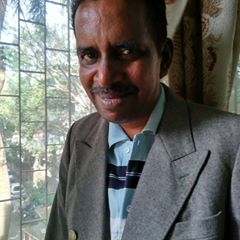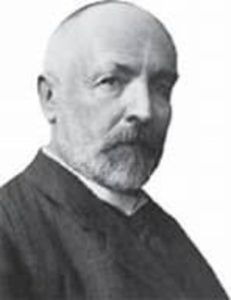
Sunday Snippets
 By Venkatesh Raghavan
By Venkatesh Raghavan
As I kept musing on how idyllic my life had turned post my choice to work from home, I recalled an early phase in my college life at St. Xavier’s Technical Institute, in the western suburbs of Mumbai. The institute has today grown into a full-fledged engineering college and has also been renamed to that effect.

I was under the stewardship of Prof. Jacob who was teaching us digital electronics, a six-months certificate course for people aspiring to learn the design aspects of digital circuitry. Our classes used to begin early in the morning at 7 am and last for two hours. Prof. Jacob in addition to teaching us logic gates and how they could be put to use in different design circuits also used to dwell on something that is popular in US school curriculum as “History of Science”.

He narrated the life and suffering of George Boole, who is now famous for the founding of Boolean logic that serves to play the rudiments in digital logic. George Boole was a self-taught mathematician and philosopher. His suffering in early days also included one of his award winning Latin poems being branded as plagiarized owing to jealousy from the upper echelons of the scholarly educational circles. Amidst much suffering and sacrifices he had to make as the sole breadwinner of his family, Boole managed to acquire professorship.
It was much later, near 1948, when an American researcher looking for supporting and building transistor logic, while semiconductor physics was still in its infancy, hit upon Boole’s research papers. This caused the popularization of what we know today as “Boolean Algebra”. Needless to say, all the logic gates that are put to use for digital circuitry are an application of George Boole’s thesis papers. What is popularly studied today as digital logic has its roots in Boole’s thesis on algebra.
Also read: Sunday Snippets: Ganesha’s adieu over the years in Mumbai

One other mathematician who underwent suffering in his lifetime, Georg Cantor, was subject to fierce criticism from Christian denominations that regarded his research as heretical. However, much later, after his death in the early twentieth century, Cantor’s research turned famous with his theorem on “Nested Intervals” laying the foundation of mathematical research both in the realms of set theory and constructs in the digital world. Popularly called Cantor’s Intersection theorem, it in simple English translates into stating, “Between any two points on a number line, there are an infinite number of points.”
While Boole was an Irish mathematician, Cantor happened to be a German. Dwelling on the history of scientific and logical thought processes during the age of enlightenment, Prof. Jacob narrated to us how a battle of words continued to get exchanged over who was the founder of calculus. While the British maintained that it was Isaac Newton, the Germans attributed it to Gottfried Leibnitz. After class hours, I ran into conversation with Prof. Jacob on the historical facts about the postulates and theorems that had evolved in the late twentieth century. The professor then revealed to me that dispute over credit, be it in literature or say sciences including philosophy are a never-ending thing. He cited the instance of William Shakespeare. “There are many who contend that Shakespeare did not have any exposure to royalty or courts of Kings. His works were penned by a Latin scholar Francis Bacon who felt it was infra dig to write in English, as in those days Latin was the language of the learned.”
Finally, we both had a good laugh contemplating whether any of our research works will find a place in historical debates at a point of time in the future.





